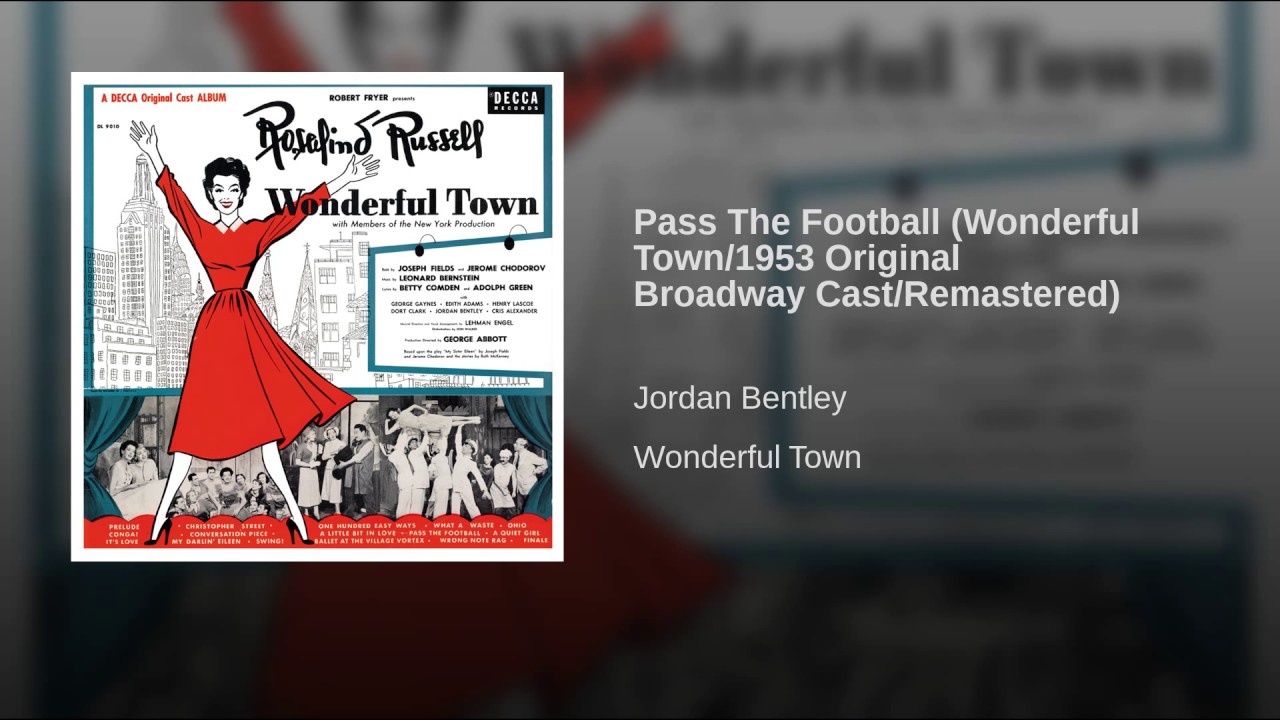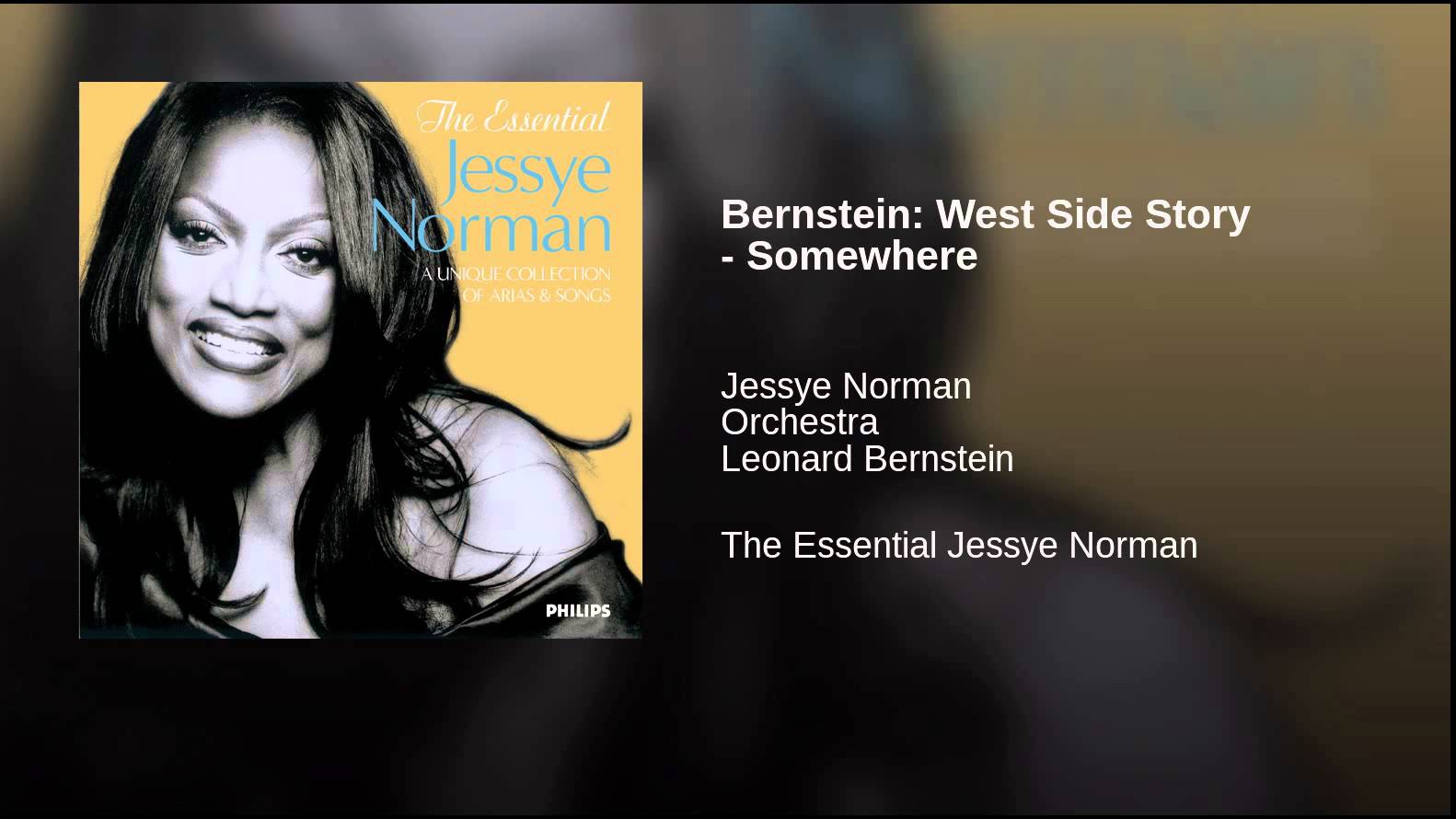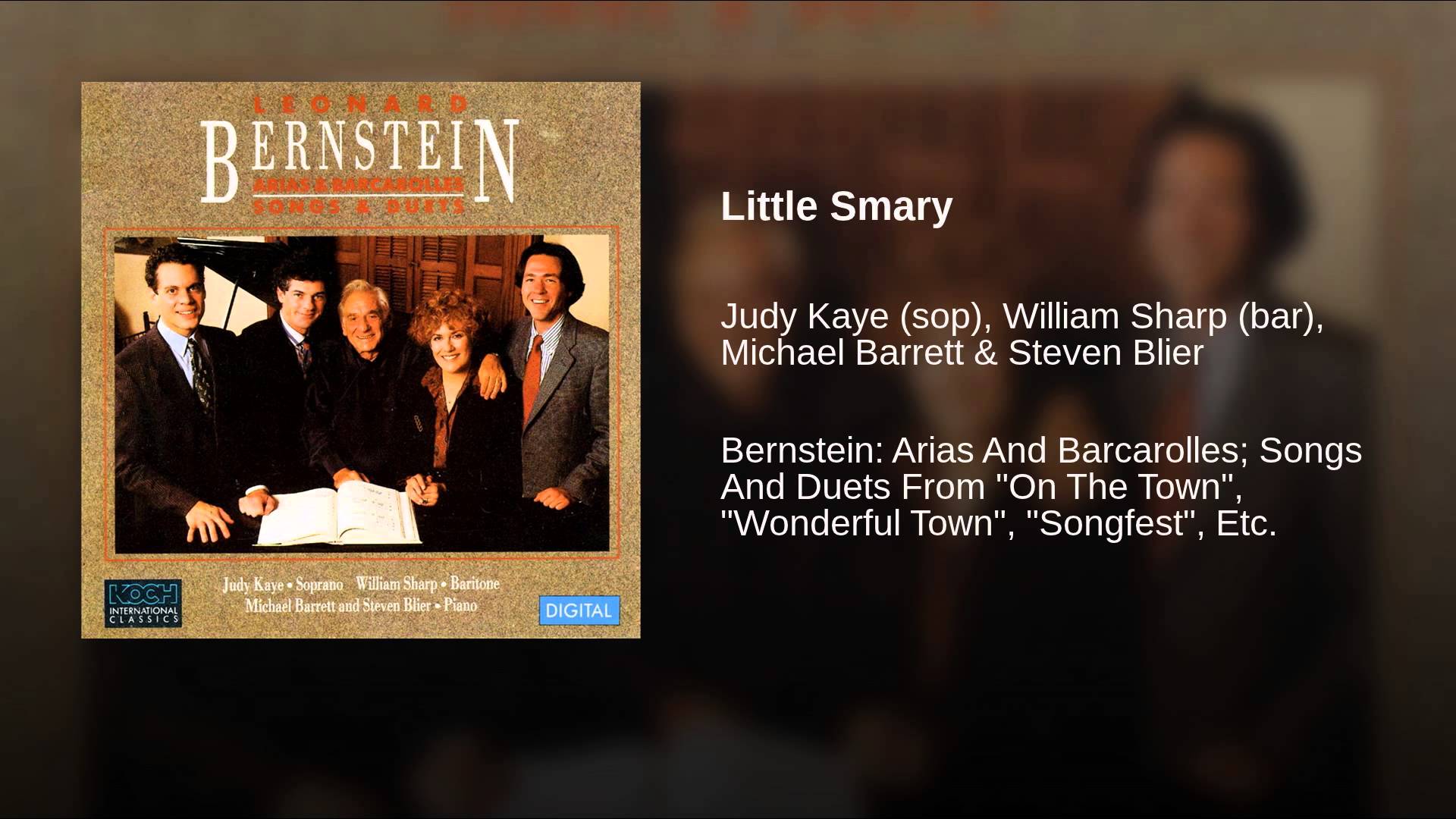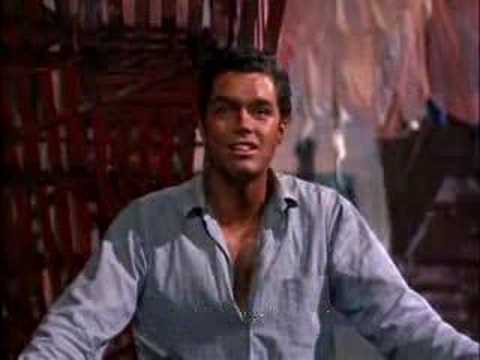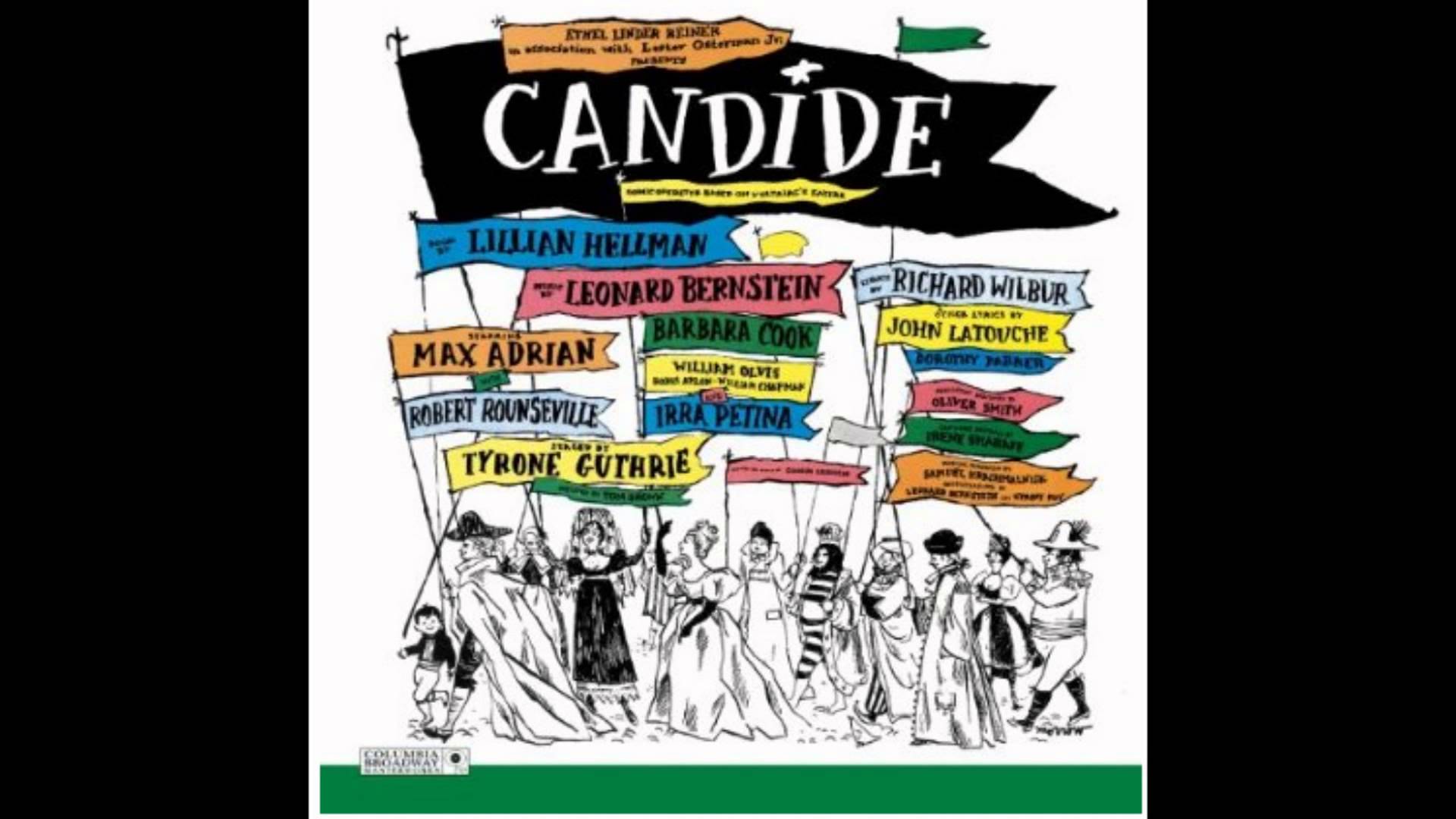Leonard Bernstein: A Julia de Burgos
This particular song portrays the voice of a woman who has broken free of societal roles and expectations. She sings that through her art, she is authentically herself and is not at the ownership or disposal of anyone or anything. Julia de Burgos was a Puerto Rican civil rights activist who lived from 1914-1953. Traveling between Puerto Rico, New York, and Cuba, she was fully involved in the nationalist philosophies that defined her life.
Leonard Bernstein: Pass the Football
This terrific remastered original cast recording from the 1953 rendition of Wonderful Town portrays Wreck, a guy who describes his fame and glory days as a student because of his ability to pass the ol’ pigskin. In this hilarious song, Wreck can’t spell, read, or write… but he introduced Albert Einstein, passed the bar exam, had every girl he could ever want, and got every scholarship… because he could pass that football!!
Leonard Bernstein: Somewhere
Perhaps Bernstein’s most well-known work, “Somewhere” has an inherent timeless relevance. It expresses the hope of a world in which conflict is absent and people are able to live without prejudice and hatred. Bernstein spent his entire life being involved in social justice both in the U.S. and abroad. He was famously quoted, “This will be our reply to violence: to make music more intensely, more beautifully, more devotedly than ever before.”
Leonard Bernstein: Little Smary
“Little Smary” is an example of Bernstein’s art song repertoire outside of the theater. The words are by Jennie Bernstein (Bernstein’s mother). The story depicts a young girl playing with her “wuddit” (rabbit). The story was a common bedtime story told to Bernstein by his mother.
Leonard Bernstein: A Little Bit in Love
From the great theater works of Leonard Bernstein, “A Little Bit in Love” is sung by Eileen, a want-to-be New York actress from Ohio. This delightful song comes from the show Wonderful Town, originally on Broadway in 1953. Eileen and her sister Ruth attempt to hit it big in the Big Apple, only to find themselves entangled in a bunch of mishaps. Eileen, unlike her sister Ruth, is a natural romantic who finds herself “a little bit in love” with many men.
Leonard Bernstein: Prehistoric Man
In the film version of On the Town, NYFOS friends Betty Comden and Adolph Green have the somewhat uptight Ann Miller character lead the gang of on-leave sailors into the Museum of Natural History, where she gets very turned on by the primitive man exhibit. The dancing is fabulous, so is her green dress, and the lyrics are laugh-out-loud funny. But the political incorrectness of everything that happens seems without bound: men are sexy because they are brutish; the sexualized “other” is human but seen as subhuman. If you’ve read the contrarian article entitled “Saviors, Victims, and Savages” on my human rights class syllabus, it is hard watch this silly dance number without your PC antennae up.
Romberg: The Riff Song; Szymanowski: Songs of an Infatuated Muezzin
My dad had a terrific singing voice, appearing as a young man in “light operas” such as the 1926 musical The Desert Song, an entertainingly orientalizing show about dashing Moroccan Berber rebels on horseback and their sexy womenfolk who performed the dance of the seven veils under the male gaze of French officers. Flash forward to ISIS, kidnapped Yazidi brides, and on-going debates over neo-colonial humanitarian intervention, and this all has a decidedly contemporary feel, no matter how cartoonish, culturally stereotyped, and ethically questionable.
Leonard Bernstein: Something’s Coming
Last night Steven Blier led off the Bernstein concert with “Something’s Coming,” the quintessential expression of the blindly hopeful anticipation of youth from West Side Story. I wanted to pick this song even before knowing that it would be on Steve’s playlist.
Bernstein discusses and conducts Stravinsky’s “Oedipus Rex”
It’s hard to think of a more iconic work of western (and New York) civilization than Sophocles’ Oedipus Rex. Among other impacts, it spawned Freudian psychology, which for a time reigned nearly hegemonic on the isle of Manhattan, and no doubt provided the conceptual underpinnings for the careers of more than a few veteran NYFOS-attenders.
Leonard Bernstein: Glitter and Be Gay
Today’s shamelessly pandering selection is the universally beloved Barbara Cook singing the wonderful “Glitter and Be Gay” from Candide, a song so difficult that she was sure she would be utterly incapable of singing it. The video clip includes part of an interview where she describes the horrors of initial rehearsals.
Take Care of This House
Today is an auspicious double anniversary: the New York Festival of Song is thirty years old, and NYFOS’s Founding Advisor Leonard Bernstein is…well, nearly one hundred. He’ll officially round off his century mark on August 25, 2018. But centennial festivities are planned over the span of two full concert seasons, and NYFOS wanted to get in at the very beginning. It seemed appropriate to kick off our Pearl Anniversary by honoring one of our most important mentors. And his rousing bicentennial cantata Songfest seemed like the perfect vehicle—not just for our three-decade mark, but to raise the roof in celebration of our country’s cultural wealth and diversity.
Shay, Fisher, and Goodwin: When You’re Smiling
"When You're Smiling" is a popular song written by Larry Shay, Mark Fisher and...
Victor Hely-Hutchinson: Old Mother Hubbard
“Classical” vocal music as a fun encore? Absolutely. Old Mother Hubbard, by Victor Hely-Hutchinson the the perfect encore, finale, or party piece. It’s exciting, shows off the flexibility of the voice, and is funny from the first phrase to the last!
Carlos Guastavino: Pampamapa
Carlos Guastavino, an Argentinian composer whose songs most often contain fluid melodies and a natural lyricism rooted in the folk traditions of his homeland. There is often a great deal of imagery in the texts that he chooses to set, and the style of his composition is derived from the ”huella”.
William Bolcom: Song of Black Max
As I began to think of some of the songs that I love, my mind immediately gravitated to multiple pieces from the cabaret songs of William Bolcom. Within these volumes of songs, “Black Max” (as it is most commonly known), has always stuck out as a favorite.



